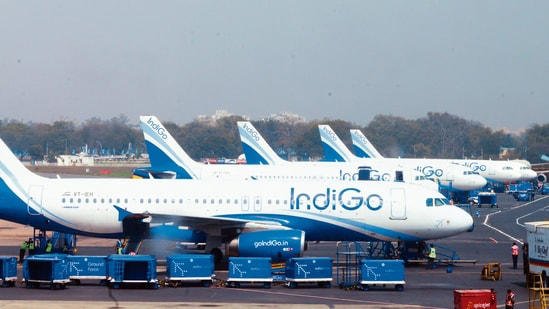Over 70 flights from major Indian airlines, including Air India, IndiGo, Vistara, and Akasa, received fresh bomb threats, sending shockwaves across the aviation sector. The threats, received on [date], caused widespread panic among passengers and triggered stringent security measures at airports nationwide. With the airline industry already grappling with operational challenges, the sudden threats posed a new layer of complexity and concern for authorities, passengers, and airline staff alike.
Details of the Threats
The bomb threats were issued via anonymous communications, prompting swift responses from airlines and security agencies. Sources suggest that the threats were distributed across multiple flights, both domestic and international, affecting not just departures but also arrivals at some of India’s busiest airports. These included major hubs like Delhi’s Indira Gandhi International Airport, Mumbai’s Chhatrapati Shivaji Maharaj International Airport, and Bengaluru’s Kempegowda International Airport.
The bomb threats varied in their specificity, with some mentioning particular flights and others being more general in nature, targeting a larger group of aircraft. This forced authorities to treat each threat with the utmost seriousness, as the credibility of such warnings can never be ruled out. Aviation security teams, the Central Industrial Security Force (CISF), and local police units were put on high alert, with bomb squads, sniffer dogs, and other security apparatus mobilized swiftly.
Immediate Impact on Flights
Several flights had to be grounded, and passengers were deboarded for thorough security checks. Flights that had already taken off were either diverted to the nearest airports or instructed to undergo heightened security inspections upon landing. Passengers on these flights experienced significant delays and were kept informed about the security situation.
Air India and IndiGo, two of the most affected airlines, confirmed that their operations were temporarily disrupted due to these bomb threats. In a statement, Air India noted that the safety of its passengers was of paramount importance and that all necessary steps were being taken to ensure security. IndiGo, meanwhile, stated that its flight schedules were impacted due to the precautionary measures but assured passengers that they were working closely with authorities to minimize delays.
Vistara and Akasa Airlines, though relatively less impacted, also took precautionary measures by conducting security sweeps of their aircraft before allowing passengers to board.
Security Protocols Activated
In response to the bomb threats, Indian aviation authorities, along with the Bureau of Civil Aviation Security (BCAS), activated a multi-tier security protocol. Aircraft were scanned thoroughly, and passenger baggage was re-screened using advanced equipment. Additionally, certain airports saw a marked increase in the presence of security personnel.
Passengers on the affected flights reported heightened security checks before boarding, including personal screenings and inspections of their luggage. Some passengers expressed frustration at the delays but acknowledged the importance of these measures. “It’s a bit scary, but I’d rather be delayed than risk my safety,” said one traveler at Delhi airport.
Airport terminals in cities like Delhi, Mumbai, and Kolkata saw an increase in security personnel. At these locations, authorities imposed stricter measures, such as increased perimeter patrolling and more detailed baggage scanning. Entry and exit points were also monitored closely to prevent any potential threats from materializing within the airport premises.
Ongoing Investigation
At the time of writing, it remains unclear who was responsible for issuing the bomb threats. Security agencies, including the Intelligence Bureau (IB) and National Investigation Agency (NIA), have launched an investigation into the origin of the threats. Authorities are reportedly treating the threats with “high suspicion” and are considering the possibility of coordinated attempts to disrupt air travel.
The investigation is expected to involve the analysis of phone records, emails, and other forms of digital communication that may have been used to transmit the threats. Additionally, CCTV footage from airports is being scrutinized to identify any suspicious activity.
Potential Motives Behind the Threats
While no group or individual has claimed responsibility for the bomb threats so far, experts suggest that such incidents could be attempts to cause panic and disruption within India’s aviation sector. There is also speculation that the threats could be linked to either domestic or international groups looking to undermine India’s security apparatus or its economic stability.
Some experts, however, warn that the bomb threats could also be the work of pranksters or individuals looking to cause chaos without any genuine intent to carry out an attack. This complicates the investigation as law enforcement agencies must treat every threat seriously while also considering the possibility of a hoax.
The bomb threats targeting over 70 flights from India’s major airlines represent a serious security challenge for the aviation industry. While authorities have taken swift action to mitigate the immediate risks, the incident has caused significant disruptions for passengers and airlines alike. As investigations continue, the aviation sector is likely to remain on high alert, and stricter security protocols may be implemented across the country’s airports in the coming days.
In the meantime, airlines have urged passengers to remain calm and cooperate with security measures, while also advising them to check their flight status regularly for any updates.

